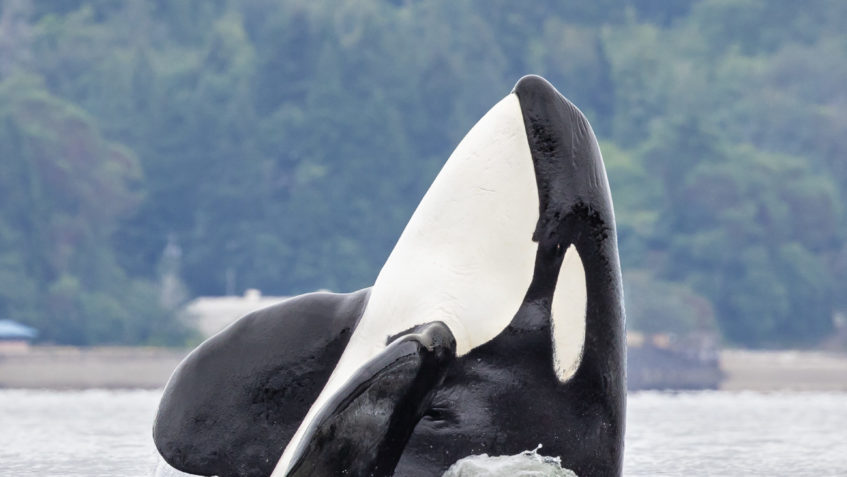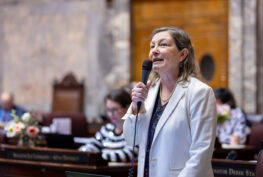OLYMPIA—The House of Representatives passed legislation on April 11, 2023, to safeguard the endangered orcas in the Salish Sea. Senate Bill 5371, sponsored by Senator Liz Lovelett (D-Anacortes) and supported by Representative Debra Lekanoff (D-Bow), received overwhelming bipartisan support through Lekanoff’s collaborative striker to strengthen the work of both House Democrats and Republicans. This effort resulted in the bill passing with an overwhelming majority of 96 ayes, 1 nay, and 1 absentee.
Senate Bill 5371 establishes a 1,000-yard setback distance for commercial recreational vessels from southern resident orcas, bringing them under the same law as commercial whale-watching vessels. The bill also provides additional exemptions from distance restrictions and is set to take effect from January 2025. Additionally, the bipartisan approach has emphasized the importance of educating and raising awareness among boaters and the public while providing support to agencies in preparing to implement the law. This comprehensive effort is a significant step towards protecting the vulnerable orca population in the Salish Sea.
Lekanoff, a member of the Tlingit and Aleut Tribes, has been a longtime advocate for the protection of orcas, or qalʼqaləx̌ič in the Coast Salish Lushootseed language. She sees the passage of the bill as a significant triumph for the Salish Sea ecosystem and the cultural heritage of Native American Tribes. “This is a momentous occasion for our state and the protection of our marine life,” she said. “By creating a setback distance from southern resident orcas, we are sending a powerful message that we are committed to protecting our marine ecosystems and respecting the cultural heritage of Native American tribes.”
The Southern resident killer whale population has declined to its lowest recorded number of 73 individuals. In November 2022, the Washington State Department of Fish and Wildlife (WDFW) recommended implementing protective measures to safeguard this endangered species. To minimize disturbances to the whales, the National Oceanic and Atmospheric Administration (NOAA) has recommended maintaining a distance of 1000 yards from the whales. Research conducted by NOAA has revealed that vessels that come within this distance cause the whales to abandon feeding activities. Additionally, mother whales will cease feeding their young if vessels approach within 400 yards, further highlighting the need for measures to protect these vulnerable creatures.
The bill will also modify the commercial whale watching business license fees, eliminate certain fees, and create paddle tour business and paddle guide licenses with associated fees in place of kayak guide licenses, which will be distinct from commercial whale watching business licenses. It will also modify enforcement provisions regarding unlawful commercial whale watching in the first degree and create enforcement provisions regarding conducting paddle tours.
According to Senator Lovelett, “This bill is not just about protecting orcas, it’s about safeguarding our entire marine ecosystem and ensuring that future generations can enjoy the beauty and bounty of the Salish Sea. We are also creating new opportunities for sustainable tourism that respects the natural environment and supports local businesses.”
The bill will now return to the Senate for concurrence and ultimately Governor Jay Inslee’s desk for signature. The passage of this bill will position Washington State as a national leader in the protection of endangered species and the promotion of sustainable tourism.




